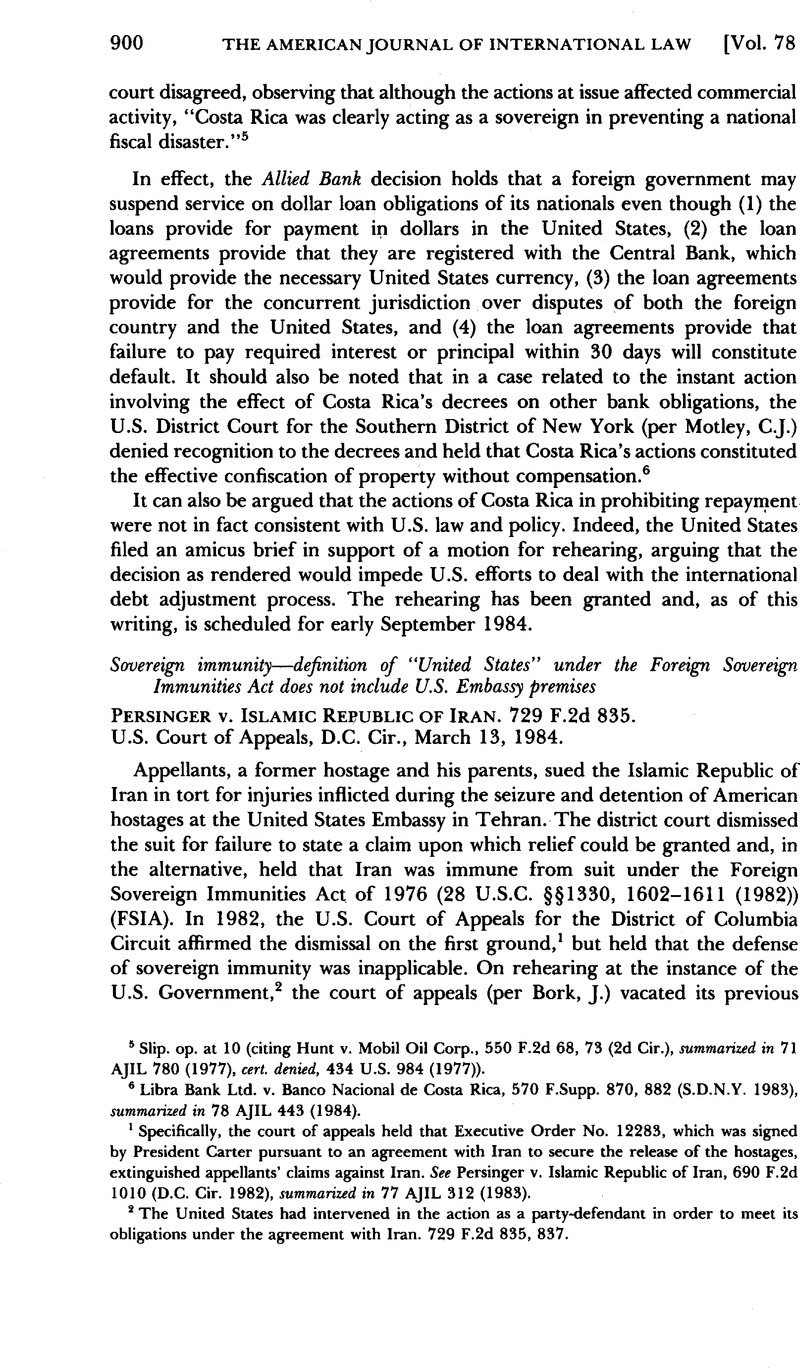No CrossRef data available.
Article contents
Persinger v. Islamic Republic of Iran. 729 F.2d 835
Published online by Cambridge University Press: 16 May 2017
Abstract

- Type
- Judicial Decisions
- Information
- Copyright
- Copyright © American Society of International Law 1984
References
1 Specifically, the court of appeals held that Executive Order No. 12283, which was signed by President Carter pursuant to an agreement with Iran to secure the release of the hostages, extinguished appellants' claims against Iran. See Persinger v. Islamic Republic of Iran, 690 F.2d 1010 (D.C. Cir. 1982), summarized in 77 AJIL 312 (1983).
2 The United States had intervened in the action as a party-defendant in order to meet its obligations under the agreement with Iran. 729 F.2d 835, 837.
3 Because the FSIA expressly deprives a court of jurisdiction over any party entitled to sovereign immunity, and because the court determined that Iran enjoyed such immunity in this case, the court deemed it improper to reach the question of the President's authority over these claims. Id. at 838.
4 See H.R. REP. No. 1487, 94th Cong., 2d Sess. 16 (1976), reprinted in 1976 U.S. CODE CONG. & AD. NEWS 6604, 6614. The court also noted the intention of Congress to "bring U.S. practice into conformity with that of most other nations." H.R. REP. at 12, U.S. CODE CONG. & AD. NEWS at 6610.
5 Compare Frolova v. Union of Soviet Socialist Republics, 558 F.Supp. 358, 362 (N.D. 111. 1983) (tortious act or omission must occur in the United States) and In re Sedco, Inc., 543 F.Supp. 561, 567 (S.D. Tex. 1982) with Letelier v. Republic of Chile, 488 F.Supp. 665, 674 (D.D.C. 1980) (only tortious injury need occur in the United States).
6 This rationale was applied by the Ninth Circuit in McKeel v. Islamic Republic of Iran, 722 F.2d 582, 589 n.10 (9th Cir. 1983), summarized in 78 AJIL 671 (1984).


